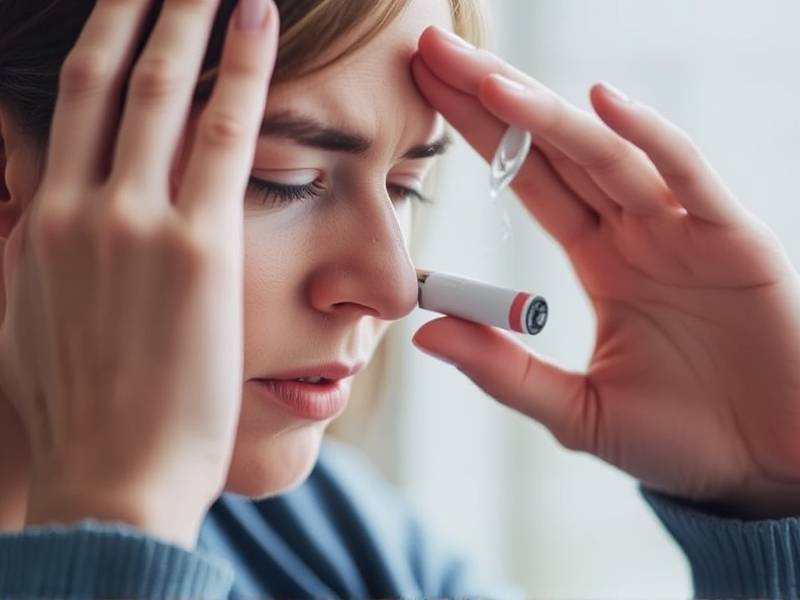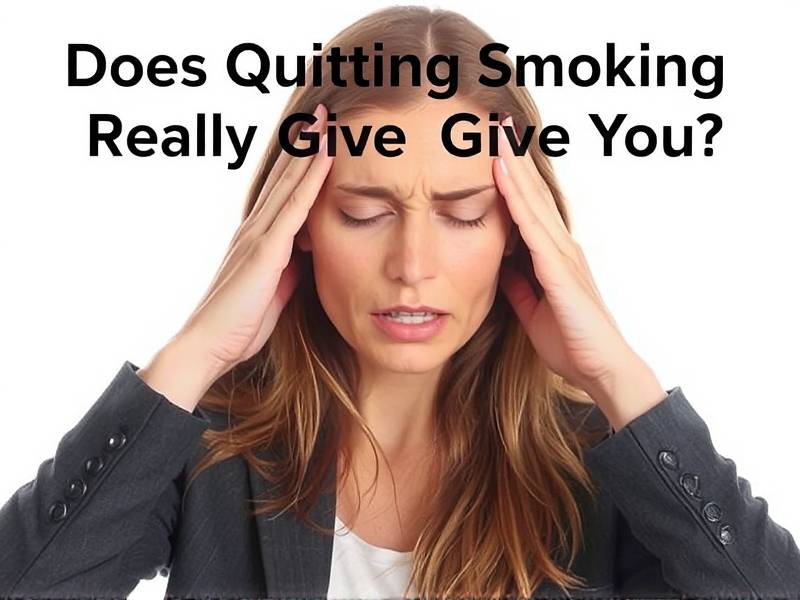Does Quitting Smoking Really Give You Headaches?
Does Quitting Smoking Really Give You Headaches?
Introduction: Quitting smoking is a significant step towards a healthier lifestyle. However, many smokers experience withdrawal symptoms, including headaches. But does quitting smoking really cause headaches? In this article, we'll explore the connection between quitting smoking and headaches, and provide you with valuable insights to help you manage this common issue.
I. Understanding the Connection Between Quitting Smoking and Headaches

A. Nicotine Withdrawal Symptoms When you quit smoking, your body goes through nicotine withdrawal. Nicotine is an addictive substance that affects the brain's reward system. As you stop consuming nicotine, your body experiences various withdrawal symptoms, including headaches.
B. Chemical Imbalance in the Brain Nicotine acts as a stimulant and alters the levels of neurotransmitters in the brain. When you quit smoking, these levels fluctuate, leading to an imbalance that can trigger headaches.
II. Common Causes of Headaches After Quitting Smoking
A. Caffeine Withdrawal Many smokers consume caffeine to counteract the sedative effects of nicotine. When they quit smoking, caffeine withdrawal can occur, causing headaches.
B. Dehydration Smokers often have lower hydration levels due to frequent cigarette breaks and reduced water intake. Quitting smoking may lead to increased thirst and dehydration, contributing to headaches.
C. Stress Quitting smoking can be stressful for some individuals due to fear of failure or social pressure. Stress can exacerbate headache symptoms.
III. Managing Headaches While Quitting Smoking
A. Gradual Reduction of Cigarette Consumption Instead of quitting cold turkey, consider gradually reducing your cigarette consumption over time to minimize withdrawal symptoms and headaches.
B. Stay Hydrated Increase your water intake while quitting smoking to combat dehydration and alleviate headache symptoms.
C. Identify Triggers and Avoid Them Pay attention to activities or environments that trigger your headaches after quitting smoking and try to avoid them.

D. Seek Professional Help if Needed If you find it challenging to manage your headaches while quitting smoking, consider seeking support from a healthcare professional or a quit-smoking program.
Conclusion: While it's true that many smokers experience headaches when they quit, understanding the underlying causes and implementing effective strategies can help alleviate these symptoms. By managing nicotine withdrawal symptoms, staying hydrated, identifying triggers, and seeking professional help if needed, you can successfully navigate the process of quitting smoking while minimizing headaches along the way. Remember that persistence is key; with determination and support from loved ones or professionals, you'll be well on your way to a smoke-free life!
